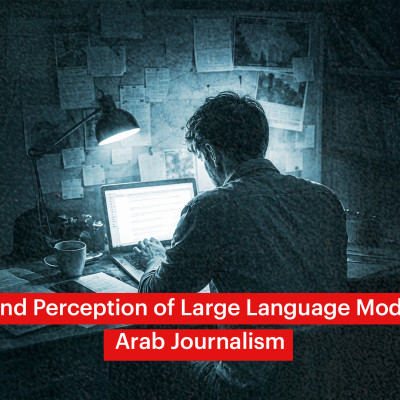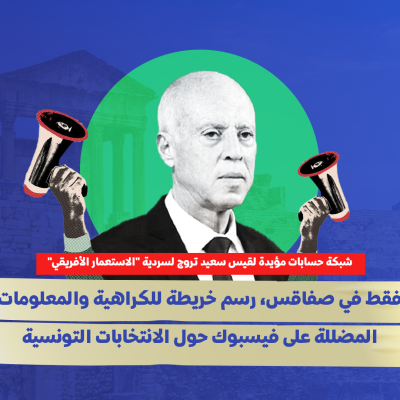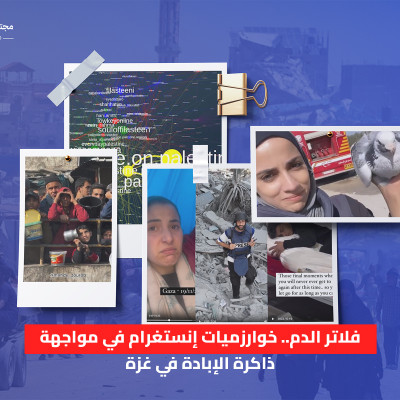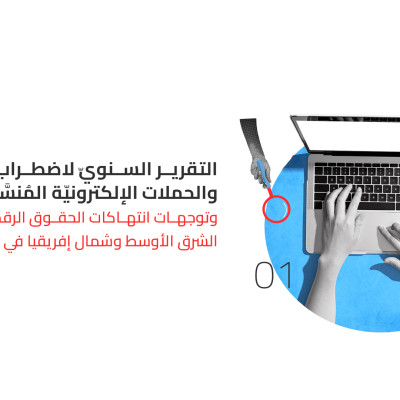Dr. Donia Tarek Abdelwahab Mohamed is an Assistant Professor at Canadian International College, Faculty of Mass Communication – Broadcasting Department. You can reach her at [email protected].
Empowering Arab Women Through Gender-Responsive Media Literacy: Navigating Digital Misinformation in the MENA Region
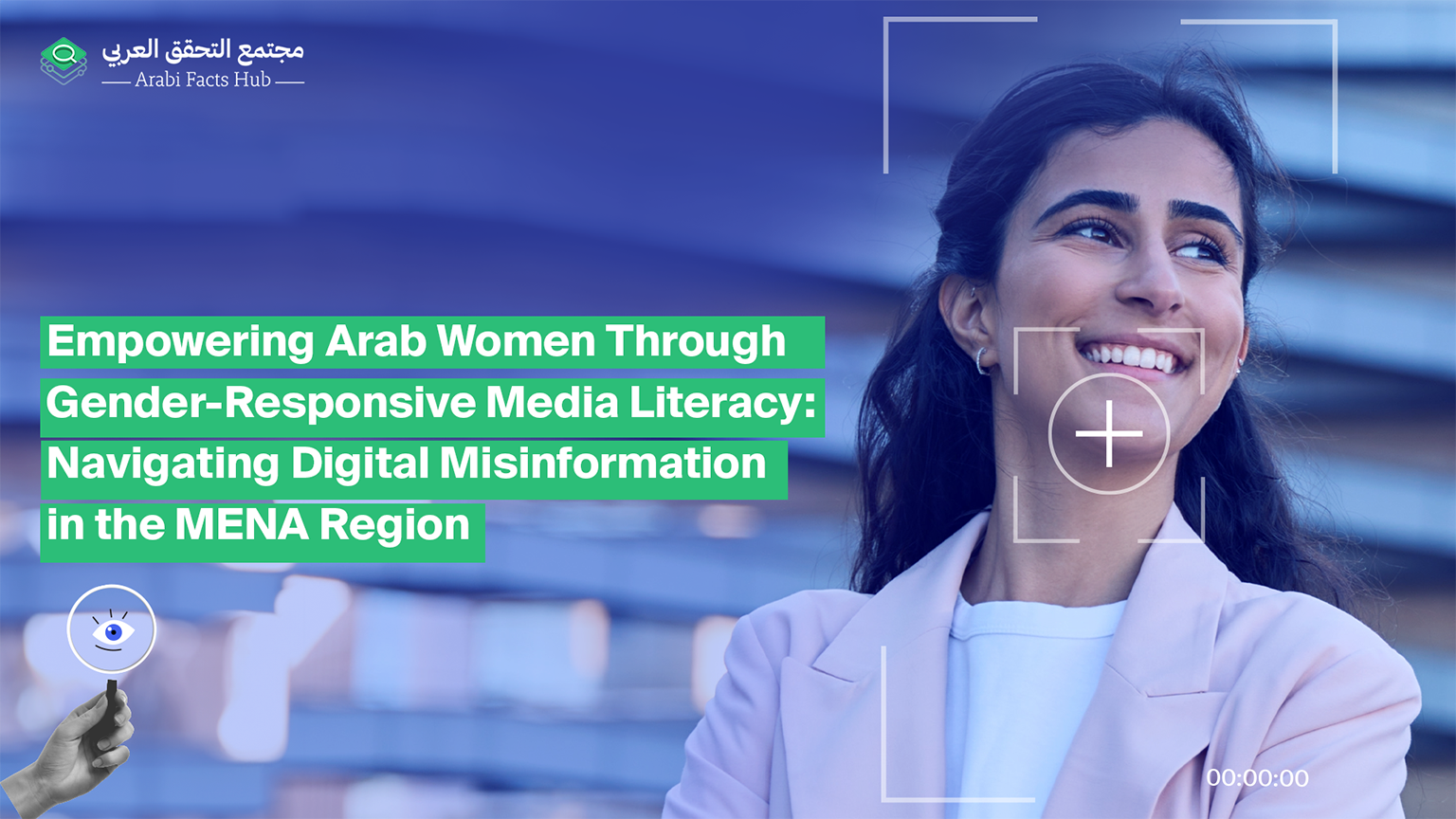
Abstract
This paper explores the role of gender-responsive media literacy in empowering Arab women to navigate digital misinformation in the MENA region. As internet access and digital engagement increase across the Arab world, women face heightened exposure to online disinformation and hate speech, often shaped by social and cultural dynamics unique to the region. Using in-depth interviews with media academics, gender studies experts, and digital literacy advocates from Egypt, Lebanon, and Jordan, this study investigates the gender-specific impacts of digital misinformation on Arab women, the current gaps in media literacy programs, and how cultural, educational, and economic factors influence women’s media engagement. Findings indicate that misinformation on health, social issues, and political narratives disproportionately impacts women, reinforcing social constraints and hindering their digital participation. The paper offers actionable recommendations, including curriculum enhancements, community outreach, and cross-sector partnerships, to foster digital resilience among Arab women. Gender-sensitive media literacy is essential not only for women’s empowerment but also for building an informed and resilient public across the MENA region.
Introduction
The rapid rise of digital misinformation presents significant challenges worldwide, with the MENA (Middle East and North Africa) region particularly affected due to its expanding internet use, political volatility, and varying literacy levels. This region, with its rich cultural diversity, faces unique dynamics in online information dissemination. Political and social factors—ranging from governmental censorship to societal expectations — shape how information is perceived, shared, and trusted. Arab women, in particular, are disproportionately impacted by digital misinformation due to a combination of factors including lower digital literacy rates, social media algorithms that amplify gender-specific fears, and the cultural significance attached to their roles in society.
The role of media literacy
In this digital age, media literacy is an essential skill for everyone, enabling individuals to critically engage with information, question sources, and assess the credibility of the content they consume. Media literacy can be broadly defined as the ability to access, analyze, evaluate, and create media in various forms. This skill is vital for successfully navigating today's information ecosystem, which is often saturated with misleading or biased information. As misinformation and disinformation become more pervasive, the ability to critically evaluate online content is not just an academic skill, but a necessity for protecting individuals and societies from harmful narratives.
While media literacy programs have been implemented globally, there is a significant gap when it comes to gender-responsive approaches — especially in the Arab world. In many cases, media literacy initiatives have focused primarily on broad, general education without taking into account the unique challenges and needs faced by different groups, particularly women. Arab women, who often face cultural and institutional barriers to accessing digital resources, are disproportionately impacted by misinformation. These barriers include limited access to education and technology, as well as social restrictions placed on women’s mobility and participation in public and political discourse. Furthermore, traditional gender roles, which dictate how women should behave in public and private spaces, often shape the ways in which women engage with digital content.
For instance, misinformation about women’s health, family roles, and political participation can have a significant impact on their personal and social lives. In many MENA countries, where family honor and social expectations weigh heavily on women, false health information, such as unfounded claims about reproductive health, can influence women’s decision-making processes, often limiting their autonomy in critical aspects of their lives. Similarly, political misinformation that discourages women from participating in civic processes can reinforce patriarchal norms and marginalize women from decision-making roles. These unique forms of misinformation highlight the need for media literacy programs that are specifically tailored to the realities of Arab women.
Public health misinformation is especially prevalent in rural communities, where access to accurate health information and reliable healthcare resources may be limited. In these areas, misinformation often spreads quickly through word-of-mouth or social media, taking advantage of gaps in knowledge and a lack of trusted local healthcare infrastructure. The isolation of rural communities, combined with lower levels of media literacy, makes them particularly vulnerable to the harmful effects of digital misinformation.
Moreover, social media platforms and digital spaces are often sites where misinformation is amplified, with algorithms promoting sensational and emotionally charged content, which can reinforce gender-based stereotypes. Gender-specific misinformation often exploits these emotions and plays into deeply entrenched social norms. For example, women may encounter false narratives that perpetuate victim-blaming in cases of domestic violence or misinformation that promotes traditional gender roles, discouraging women from pursuing careers or political leadership. These false representations can be damaging not only to individual women but also to broader societal perceptions of women’s rights and roles.
To address these challenges, it is crucial to develop media literacy programs that specifically account for gendered dimensions of digital misinformation. Such programs would go beyond generic digital literacy training to provide Arab women with the tools and strategies they need to identify and navigate misinformation that is specifically targeted at them.
Research significance
The significance of this research lies in its potential to address critical gaps in both media literacy and gender equity in the Arab region, particularly in the context of digital misinformation. As the MENA region continues to experience rapid digitalization, the role of digital media in shaping public perceptions, societal norms, and individual behaviors becomes more pronounced. Given the rising tide of misinformation, this research is timely in exploring how media literacy can be leveraged as a tool to combat digital misinformation, especially when it is gendered in nature.
Arab women, as a key demographic group, face unique challenges in engaging with digital media due to a combination of socio-cultural, educational, and technological barriers. Despite increasing internet proliferation in the region, women in many parts of the MENA area continue to have lower access to digital resources and are often marginalized in public and political spheres. This research underscores the importance of developing media literacy programs that are gender-responsive and culturally sensitive. By focusing specifically on Arab women’s experiences, this study aims to provide a nuanced understanding of how misinformation disproportionately affects them and the role of media literacy in countering these effects.
The research is also significant in that it contributes to the growing field of gender studies in media and communication. While much of the global discourse on media literacy focuses on general strategies for information evaluation, there is a clear lack of focus on gender-specific misinformation and the tools women need to navigate digital spaces. Through this research, there is an opportunity to fill this gap and to propose tailored interventions that can empower women, enabling them to critically engage with information and protect themselves from harmful narratives.
Additionally, this research has broader societal implications, as it directly addresses the role of media literacy in fostering informed, resilient, and active citizens in the digital age. By enhancing the ability of women to engage with and challenge misinformation, this study contributes to broader efforts toward gender equality, digital literacy, and civic participation. A more media-literate female population not only protects individuals from harmful information but also promotes healthier, more equitable societies by empowering women to participate in political, social, and economic spheres on more equal footing.
Moreover, this research is highly relevant for policymakers, educators, and NGOs working on gender equality, digital empowerment, and media literacy in the Arab world. The insights gained can inform the design of targeted educational programs, advocacy campaigns, and public policy interventions aimed at combating misinformation and promoting gender-inclusive digital literacy. As such, this study holds the potential to catalyze meaningful change in how Arab women are empowered to navigate the complexities of digital media, contributing to the broader goal of digital and gender justice in the region.
Research aim and research questions
This study aims to establish a framework for developing gender-responsive media literacy programs that cater specifically to the needs of Arab women. Focusing on Egypt, Lebanon, and Jordan, the research explores how misinformation uniquely affects women and examines the societal implications of gender-specific disinformation. The guiding research questions are:
- How does digital misinformation uniquely affect Arab women, and what are the societal implications?
- What gaps exist in current media literacy education that leave women vulnerable to misinformation?
- How can collaboration among policymakers, educators, and NGOs help to build a gender-responsive media literacy framework in the region?
- How can a gender-responsive media literacy framework be developed to effectively address the unique challenges faced by women in navigating digital misinformation?
Globally, studies indicate that women encounter misinformation in ways that often reinforce traditional gender roles and limit autonomy. Gendered disinformation — misinformation specifically targeting women’s social roles and health — has been a persistent issue, with significant psychological and practical impacts. Women, especially in the MENA region, face added risks from health misinformation, such as false claims about vaccines affecting fertility, and politically charged disinformation that undermines their participation in public life.
Media literacy in the Arab world has primarily focused on combating political misinformation rather than addressing gender-specific concerns. Egypt, Lebanon, and Jordan, however, each present unique digital landscapes. Egypt has seen a surge in health and social misinformation, impacting women’s perceptions of health practices and family roles. Lebanon, with a more open media environment, witnesses misinformation that exploits social and economic instability, affecting women's roles in activism and public life. Jordan’s digital landscape is developing rapidly, with media literacy initiatives beginning to address rural and underserved communities, where women face unique challenges in accessing reliable information.
Theoretical frameworks
The frameworks of Feminist Media Theory and Social Cognitive Theory provide a foundation for analyzing how digital misinformation uniquely affects Arab women and reinforce the importance of gender-responsive media literacy that considers both societal expectations and behavioral modeling influences. Together, they support the development of media literacy strategies that disrupt harmful patterns, and empower women to critically engage with and resist misinformation narratives that target their roles and health autonomy.
Feminist Media Theory provides a lens through which to analyze how media content and structures reinforce or challenge gender norms and impact women’s agency. This theory is particularly relevant in the context of the MENA region, where media often reflects and reinforces traditional gender expectations, portraying women in limited roles primarily related to family and caregiving.
Digital misinformation targets women, exploiting societal expectations around health and family, like COVID-19 vaccine infertility. These narratives limit women's decision-making power and autonomy, focusing on reproductive roles. According to Feminist Media Theory, such media portrayals and narratives are not neutral but instead serve to reproduce and solidify existing gender hierarchies, further constraining women's freedom to make independent, informed choices in both personal and public spheres.
Social Cognitive Theory (SCT), developed by Albert Bandura, posits that learning occurs through observation, imitation, and modeling. This framework is particularly relevant for understanding how women in the MENA region may internalize and replicate behaviors and beliefs based on the misinformation they encounter online. SCT emphasizes that people learn not only from direct experiences but also by observing the actions and outcomes of others’ behaviors. In the context of digital misinformation, SCT helps explain how observing online discussions, social media posts, and even influencers’ stances on health and social issues can shape women’s beliefs and behaviors.
For Arab women, misinformation on social media often models mistrust in health practices, encouraging behaviors such as vaccine hesitancy or skepticism toward public health guidelines. Through the framework of SCT, when women repeatedly encounter disinformation that casts doubt on the safety or necessity of certain health measures, they may internalize these attitudes, especially if influential figures within their social networks also express these views.
Methodology
Research Design: This study employs a qualitative research design centered around in-depth interviews to explore how Arab women in Egypt, Lebanon, and Jordan navigate and experience digital misinformation. Qualitative methods were chosen to gain a nuanced understanding of the gender-specific challenges women face online. By examining expert insights, the study aims to reveal patterns in misinformation’s impact, assess the effectiveness of current media literacy initiatives, and gather suggestions for developing gender-responsive programs tailored to the cultural and social contexts of the MENA region.
In-depth Interviews: In-depth interviews were conducted with a purposive sample of 30 participants, comprising media academics, gender studies experts, and digital literacy advocates. These participants were selected based on their expertise in media literacy, gender issues, or digital engagement within the specific contexts of Egypt, Lebanon, and Jordan. The semi-structured interview format allowed for open-ended questions, enabling participants to share detailed perspectives on the influence of digital misinformation on women in their respective societies and the existing gaps in media literacy education.
Sampling and Selection Process: A purposive sampling approach was applied to select participants who could provide in-depth, contextual insights into the issue. This sampling method is well-suited for qualitative research, as it ensures that participants possess specialized knowledge relevant to the research questions. By choosing individuals with expertise in media studies, gender issues, and digital advocacy, the study captures a diverse range of perspectives on the ways misinformation affects women and on potential solutions for enhancing media literacy.
Participant List: To protect confidentiality, the list provided here is an example format, as specific names and identifying information would be anonymized unless consented otherwise.
|
Participant ID |
Country |
Position |
Field of Expertise |
|
P1 |
Egypt |
Professor of Media Studies |
Media Literacy |
|
P2 |
Egypt |
Gender Studies Lecturer |
Gender Issues and Advocacy |
|
P3 |
Egypt |
NGO Director |
Digital Literacy Programs |
|
P4 |
Egypt |
Public Health Advisor |
Health Communication |
|
P5 |
Egypt |
Social Media Analyst |
Misinformation in Digital Media |
|
P6 |
Egypt |
Researcher in Gender Studies |
Women’s Health in Media |
|
P7 |
Egypt |
Media Consultant |
Media and Cultural Studies |
|
P8 |
Egypt |
Journalist |
Women's Rights and Media |
|
P9 |
Egypt |
Digital Literacy Advocate |
Media Literacy Initiatives |
|
P10 |
Egypt |
University Lecturer |
Media Effects on Society |
|
P11 |
Lebanon |
Professor of Communication |
Media and Social Change |
|
P12 |
Lebanon |
Digital Advocacy Specialist |
Misinformation and Policy |
|
P13 |
Lebanon |
Gender Equality Consultant |
Gender and Public Policy |
|
P14 |
Lebanon |
Social Media Strategist |
Digital Misinformation |
|
P15 |
Lebanon |
NGO Leader |
Women's Empowerment Programs |
|
P16 |
Lebanon |
Researcher in Digital Culture |
Online Gender Norms |
|
P17 |
Lebanon |
Human Rights Lawyer |
Women's Rights Advocacy |
|
P18 |
Lebanon |
Political Scientist |
Digital Literacy in Conflict |
|
P19 |
Lebanon |
University Professor |
Media Studies and Gender |
|
P20 |
Lebanon |
Public Policy Advisor |
Gender and Digital Platforms |
|
P21 |
Jordan |
Media Literacy Coordinator |
Community Media Initiatives |
|
P22 |
Jordan |
Gender Studies Academic |
Gender and Social Norms |
|
P23 |
Jordan |
Public Health Communicator |
Health Misinformation |
|
P24 |
Jordan |
Rural Outreach Program Leader |
Digital Literacy in Rural Areas |
|
P25 |
Jordan |
University Media Researcher |
Media Literacy for Women |
|
P26 |
Jordan |
Social Policy Consultant |
Digital Literacy Development |
|
P27 |
Jordan |
Women’s Rights Activist |
Gender and Digital Safety |
|
P28 |
Jordan |
Journalist |
Media Coverage on Women |
|
P29 |
Jordan |
NGO Worker |
Media Training Programs |
|
P30 |
Jordan |
Community Health Educator |
Media Impact on Women's Health |
Interview Process: Each interview lasted between 45 and 60 minutes and was conducted via video call or in-person, depending on participants’ locations and preferences. The interviews were semi-structured, with questions designed to elicit detailed insights on:
- The types of misinformation targeting Arab women and how it affects their roles and decision-making.
- The effectiveness and inclusivity of current media literacy programs.
- Specific challenges women in Egypt, Lebanon, and Jordan face in accessing credible information.
- Suggestions for a gender-responsive framework in media literacy tailored to the Arab world.
Data Analysis: All interviews were transcribed, coded, and analyzed thematically to identify key patterns and insights. Coding was guided by the study’s research questions, focusing on themes related to gender-specific impacts of misinformation, barriers in digital literacy, and the need for culturally relevant, inclusive media literacy programs. The thematic analysis allowed for a comprehensive understanding of how misinformation influences women across different contexts in the MENA region and revealed commonalities and differences in the challenges faced by women in Egypt, Lebanon, and Jordan.
This research design ensures a thorough exploration of the unique challenges that digital misinformation presents for Arab women, informed by the specialized knowledge of experts across three diverse yet interconnected media landscapes.
Interview findings and analysis
Question 1: How does digital misinformation uniquely affect Arab women, and what are the societal implications?
Experts from all three countries highlighted that health misinformation, particularly around topics like reproductive health and COVID-19 vaccines, disproportionately targets women. In Egypt, for instance, myths suggesting that vaccines cause infertility or harm pregnancy were pervasive. These narratives not only affected women’s health decisions but also created social pressures from family members who discouraged women from seeking vaccinations due to fears about fertility.
Interviewees pointed out that misinformation targeting women often reinforces traditional gender norms, as well as social and cultural expectations. In Lebanon, where women actively participate in social and political movements, misinformation campaigns have portrayed female activists as "immoral" or "unfit" for leadership roles, deterring women from participating in public life.
In Jordan, experts noted economic and labor-related misinformation targeting women included narratives about women’s roles in the workplace. For example, stories circulating on social media claimed that women in certain professions (e.g., health workers) had higher COVID-19 infection rates, leading to job insecurity and workplace discrimination against women in certain sectors.
Societal implications were also discussed within this question which had a number of recurring/ important points by the experts. One example was the reinforcement of gender stereotypes. By perpetuating harmful stereotypes and fears, digital misinformation constrains women's roles in society and discourages them from seeking empowerment opportunities. Misinformation that ties women’s health decisions to family welfare, for example, reinforces expectations that women should prioritize family roles over personal autonomy.
Question 2: What gaps exist in current media literacy education that leave women vulnerable to misinformation?
Experts across the three countries agreed that media literacy programs tend to overlook gender-specific concerns. In Egypt, for instance, media literacy curricula do not address health misinformation affecting women or the unique challenges women face in navigating digital spaces.
Most programs focus broadly on identifying credible sources or understanding media bias, but fail to address the specific ways that misinformation targets women based on social and cultural roles. In Lebanon, media literacy initiatives often do not cover misinformation related to women’s roles in political activism, leaving women more susceptible to character attacks and misinformation during public events.
Many media literacy programs are inaccessible to women in rural or underserved communities. Jordan’s experts highlighted that women in rural areas often lack access to digital resources and therefore miss out on media literacy initiatives available in urban centers.
Across the countries, it was noted that older women are often left out of media literacy programs due to lower digital literacy and limited internet access. In Egypt, this demographic remains vulnerable to misinformation shared via WhatsApp and other messaging apps where health myths and rumors proliferate.
In many cases, women hesitate to seek information or question misinformation due to cultural expectations. Interviewees from Jordan highlighted that women in conservative communities may fear repercussions if they seek out "controversial" topics, such as reproductive health, online.
Question 3: How can collaboration among policymakers, educators, and NGOs help to build a gender-responsive media literacy framework in the region?
Experts suggested cross-sector collaborations, including that policymakers should work closely with educators and digital literacy advocates to develop curricula that reflect gender-specific challenges. In Egypt, experts emphasized the need for governmental support in integrating media literacy into secondary education, with a particular focus on disinformation that impacts women’s health and safety.
Many experts advocated for NGOs to lead outreach in underserved and rural areas where government services are limited. In Jordan, NGOs were seen as crucial partners in designing programs that educate rural women on identifying credible health information, given that public health misinformation is particularly rampant in rural communities.
Interviewees from Lebanon proposed a regional coalition where countries can share effective gender-sensitive media literacy practices. By leveraging cross-border insights, this coalition could address common misinformation themes and strengthen regional resilience.
Question 4: How can a gender-responsive media literacy framework be developed to effectively address the unique challenges faced by women in navigating digital misinformation?
A recurring suggestion from experts was to incorporate modules that specifically address gendered misinformation, such as health myths around fertility or family dynamics. In Egypt, curriculum modules that challenge misinformation about women’s health could be valuable in public health initiatives.
Experts stressed the importance of tailoring content to resonate with each country’s cultural context. In Lebanon, where women are active in social movements, media literacy modules could address online activism and tactics for countering character attacks.
In Jordan, it was suggested that community centers and local organizations could host media literacy workshops specifically aimed at women in rural areas. These workshops would provide skills in identifying misinformation and offer practical tools for verifying health information online.
Experts noted the importance of using platforms such as Facebook and Instagram to reach younger women, who are more likely to engage with digital literacy campaigns online. Campaigns promoting positive stories and information verification methods were suggested as effective outreach strategies.
Experts from Lebanon suggested collaboration between governments and private tech companies to develop accessible, user-friendly digital literacy tools that can be distributed across schools and community centers.
University-led initiatives could incorporate research and training on gender-specific misinformation, with NGOs providing practical support for community outreach. In Egypt, universities were seen as essential partners in developing and delivering gender-focused media literacy programs that align with community needs.
Experts advocated for implementing feedback loops where women can report on their experiences with misinformation, and provide input on media literacy program effectiveness. In Jordan, community surveys and digital questionnaires were proposed to gather data on the program’s reach and impact.
In Lebanon, it was suggested that a regional database documenting common misinformation narratives could aid in tailoring literacy programs and developing targeted interventions.
Limitations of the study:
1. Geographic Scope
This study was limited to three countries in the MENA region—Egypt, Lebanon, and Jordan—which, while diverse, do not represent the full range of cultural, political, and social dynamics across the Arab world. Each country has unique factors influencing digital media use, misinformation trends, and gender norms, meaning that results may not be generalizable across other Arab countries. For example, Gulf Cooperation Council (GCC) countries, like Saudi Arabia and the United Arab Emirates, have higher digital literacy rates and more government-regulated media environments, which might affect women’s exposure to and engagement with misinformation differently than in Egypt or Lebanon.
The study’s focus on these three countries means it may not capture significant differences in how misinformation impacts women in North African countries, such as Tunisia and Morocco, or in conflict-affected areas like Syria and Iraq, where media access and reliability can be further limited by political instability and infrastructure issues.
2. Urban and Rural Focus
While this research included perspectives from both urban and rural areas within each country, the distinction was broad, and many differences within these categories may not have been fully captured. Urban centers like Cairo, Beirut, and Amman each have complex subregions with varying socio-economic and educational backgrounds, which could influence how women access, interpret, and react to digital misinformation. Conversely, rural areas are diverse in their own right, with each community shaped by specific cultural norms, literacy levels, and internet accessibility that this study could not explore in detail.
Limited data from rural regions also posed challenges. In many rural areas, internet connectivity is inconsistent, making it difficult to measure digital engagement accurately. Women in these communities may have different levels of vulnerability to misinformation, influenced by lower internet use and reliance on offline sources, a factor that would require further study to understand fully.
3. Sample Size and Diversity
The study relied on a purposive sample of 30 experts, which, while providing depth, may limit the breadth of perspectives. A larger sample across more professional backgrounds, such as public health officials, rural community organizers, and women’s rights activists in other MENA countries, could yield a more comprehensive understanding of the specific challenges and solutions for each context. Additionally, the perspectives of women themselves were not directly included; instead, the research relied on expert insights. Including firsthand accounts from women across different demographics, professions, and socio-economic statuses would add important personal dimensions to the findings.
4. Potential Bias in Expert Perspectives
Relying on experts in media, gender studies, and digital advocacy, while valuable, may introduce certain biases, as these professionals may have specific views on the importance and solutions for media literacy that do not fully reflect the perspectives of women from varied backgrounds. Additionally, experts may overestimate the awareness and receptiveness of communities toward media literacy initiatives, especially when discussing rural or less connected populations.
5. Focus on Existing Media Literacy Programs
This study focused on analyzing and assessing existing media literacy programs in Egypt, Lebanon, and Jordan, but it did not examine the development of these programs over time or in-depth evaluations of their impact on individual behavior. Some programs may have informal or evolving components that were not captured due to resource constraints and limited availability of longitudinal data. Moreover, understanding the long-term effectiveness of media literacy initiatives would require sustained monitoring and follow-up, which was beyond the scope of this study.
6. Cultural Sensitivity and Generalizability
Given the unique cultural contexts within the MENA region, certain findings may not be universally applicable even within Egypt, Lebanon, and Jordan. Norms around women’s roles, media engagement, and family structures vary widely, and responses to misinformation are often shaped by these deeply ingrained cultural factors. This means that applying the findings or proposed framework in other contexts may require significant adaptation to align with specific cultural norms and values.
Recommendations
To address the increasing challenges of misinformation among women, especially in underserved communities, it is crucial to design curricula that specifically tackle their concerns. These curricula should be comprehensive, promoting critical thinking and health literacy, with modules dedicated to equipping women with the tools to identify and confront gender-specific misinformation. By addressing the digital landscape’s complexities, such programs can empower women to discern factual information from misleading narratives. In addition, offering workshops that focus on evaluating the credibility of sources and recognizing misinformation can be an effective strategy for enhancing autonomy in navigating online spaces, particularly for women from rural or marginalized areas.
Another key element is to engage women from underserved communities through targeted outreach programs. Tailored workshops, often held in collaboration with community centers, can provide the necessary skills to effectively assess digital content. This grassroots-level engagement helps to bridge the digital divide, ensuring women from rural or economically disadvantaged backgrounds are not left behind in the fight against misinformation.
To further amplify these efforts, it is essential to build partnerships among policymakers, educational institutions, and NGOs. Collaborative initiatives can ensure that media literacy programs are not only inclusive and culturally relevant but also sustainable. By pooling resources and expertise, such partnerships can expand the reach of these programs, particularly to marginalized communities that may have limited access to information. Additionally, fostering cross-sector collaboration can create a more cohesive approach to combating misinformation and support women in navigating complex media landscapes.
Influencers and digital content creators also play a pivotal role in shaping public opinion and behavior. By partnering with these figures, campaigns promoting positive narratives, such as “Digital Resilience for Women,” can be launched to advocate for responsible media consumption and counter the spread of fear-based misinformation. These campaigns should focus on empowerment, encouraging women to take control of their online presence and engage critically with digital content.
Lastly, incorporating feedback mechanisms into media literacy programs is essential for refining their effectiveness. Providing women with platforms to report misinformation, share their experiences, and discuss challenges they face in digital spaces can create a loop of continuous improvement. This feedback not only helps to improve future interventions but also allows for tracking the progress and impact of these programs, ensuring they remain responsive to the evolving digital landscape.
Conclusion
This study reveals critical insights into the gender-specific challenges that Arab women face in navigating digital misinformation and underscores the urgent need for gender-responsive media literacy frameworks across the MENA region. As digital misinformation proliferates, targeting women’s health, social roles, and political participation, it becomes evident that traditional, one-size-fits-all media literacy programs are insufficient to address these unique challenges. By examining Egypt, Lebanon, and Jordan, this research highlights the ways in which cultural, societal, and technological factors intersect to shape the digital experiences and vulnerabilities of Arab women.
This study highlights the disproportionate impact of digital misinformation on women in the MENA region, particularly in reinforcing traditional gender roles and limiting women’s autonomy over health and social choices. The findings underscore the critical need for gender-responsive media literacy programs that address these unique challenges, particularly in underserved and rural communities where access to resources is limited.
Current media literacy efforts, while more available in urban areas, often fail to address issues specific to women, such as reproductive health misinformation and gender norms. A multi-sectoral, collaborative approach is essential to develop inclusive, culturally sensitive media literacy frameworks that empower women across diverse contexts. By integrating gender-sensitive content into media literacy curricula and fostering cross-border cooperation, the region can build a more resilient response to misinformation and promote women’s digital empowerment. Ultimately, these efforts are crucial for combating misinformation’s harmful effects and ensuring that women in the MENA region can navigate the digital landscape as informed, resilient citizens.
Gender-responsive media literacy is not simply an add-on to existing digital literacy efforts; it is a necessary foundation for creating a digitally resilient society. By equipping women with the skills and confidence to discern credible information and make informed decisions online, the MENA region can pave the way for a more informed, equitable, and resilient future. This study lays the groundwork for future research and action on gender-specific media literacy in the digital age, with broader implications for global efforts to build societies that are equipped to confront the complex challenges of misinformation.
